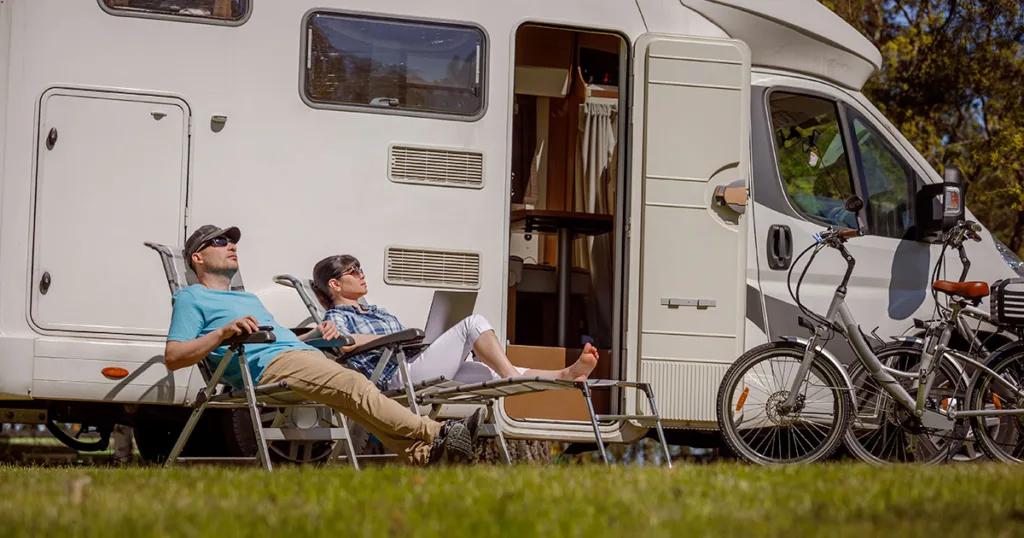RV Vacations Save Big: 2025 Study Insights
Study Highlights
A recent study comparing vacation costs indicates that consumers seeking to save money on travel should consider going RVing. The research shows that recreational vehicle trips are the most budget-friendly option despite economic uncertainty and fuel price fluctuations.

Groups Analyzed
Key Findings
A study conducted by PKF Consulting USA, an international consulting group specializing in travel and tourism for the Recreation Vehicle Industry Association, revealed that RV travel is significantly more cost-effective than other types of vacations. The study found that a family of four owning an RV can save between 23 and 59 percent on vacation costs, while an empty-nester couple traveling by RV can save between 11 and 46 percent.
Fuel Price Resilience
The research examined the expenses of owning a camper and gas prices, closely analyzing holiday costs. It discovered that taking holidays with a camper can be more economical than traveling by personal vehicle or airplane. When you factor in the costs of lodging in hotels, leasing houses or apartments, and eating at restaurants, these choices are pricier than camper travel. This demonstrates how budget-friendly and rewarding a camper holiday can be compared to more conventional vacation methods.
Owner Feedback
The study quantifies what RV owners have intuitively understood for years – opting for RV travel is a cost-effective choice for saving money on travel, stated Richard Coon, the president of RVIA. With the added benefit of enjoying frequent getaways to bond with family and friends in the great outdoors, owning an RV presents exceptional value to travelers seeking memorable experiences.
PKF conducted a detailed analysis of vacation expenses for two distinct groups of travelers: a family of four comprising two adults and two children and a party of two adults. The study involved calculating the overall costs for these hypothetical travelers embarking on nine various types of vacations to popular destinations, which included Branson, MO; Cape Cod, MA; the Grand Canyon; Corpus Christi, TX; Orlando, FL; Lancaster, PA; Napa, CA; Traverse City, MI; and Yellowstone National Park.
The study analyzed various popular RV types, encompassing folding camping trailers, lightweight travel trailers, compact motorhomes, Type C motorhomes, and Type A motorhomes. Vacation durations were examined at 3, 7, and 14 days, correlating directly with the round-trip distances in highway miles between city pairs. Additionally, PKF scrutinized the potential impact of theoretical increases in fuel prices on overall vacation travel costs.
RV vacations proved to be more cost-effective than the other options examined, irrespective of the duration, distance traveled, or geographical region of the vacation destination, stated Kannan Sankaran, Vice President of PKF. The data demonstrate that while fuel expenses are a factor in the total vacation cost, they do not have a significant enough impact to alter the results of our analysis substantially.
The study compared trips taken in Type A motorhomes, typically the largest and most luxurious RVs, to other upscale vacation travel options. The findings revealed that vacations in Type A motorhomes were 45 percent more cost-effective than upscale air and hotel combinations for accommodation.
The study revealed that significant increases in fuel prices would be required for RV vacations to lose their economic advantage over other forms of travel. For a family of four, fuel prices would need to more than quadruple, while for an adult couple, they would need to more than double before RV vacations became more costly. PKF observed that changes in fuel prices impact all vacation types analyzed. Airlines, for example, often charge surcharges and extra fees when fuel costs rise.
The results from PKF’s study are consistent with the feedback from RV enthusiasts, as indicated by RVIA’s biannual Campfire Canvass survey of RV owners. In a September poll, 89 percent of RV owners reported saving 10 percent or more when traveling by RV, with two-thirds stating savings of 25 percent or higher.
The study did not attempt to quantify the non-monetary benefits that RV vacationers experience.
Sankaran of PKF said RVing provides families with a distinctive travel experience that appeals to those looking to enhance a sense of togetherness, control, flexibility, and convenience in their travels. Raising a family and preferring shorter, budget-friendly vacations can be well met by owning an RV, which offers convenience and minimizes complications.
The Recreation Vehicle Industry Association is the national organization representing nearly 400 manufacturers and component suppliers responsible for producing approximately 98 percent of all RVs manufactured in the United States.
RV Vacations Save Money

A comprehensive study comparing expenses to popular U.S. travel destinations demonstrates that families can significantly reduce vacation costs by choosing RV travel over other vacation types.
Quick Savings Examples
| RV Type vs. Method | Itinerary | Savings |
|---|---|---|
| Folding Trailer vs. Car/Hotel | Denver to Grand Canyon | 42% |
| Type C vs. Airline/Hotel | Atlanta to Orlando | 46% |
| Travel Trailer vs. Air/Rental | DC to Cape Cod | 37% |
Cost Breakdown: 4-Person Trips
| Mode | 3 Days | 7 Days | 14 Days |
|---|---|---|---|
| Folding Trailer (camp, self-meals) | $721 | $1,634 | $3,158 |
| Travel Trailer (camp, self-meals) | $880 | $1,997 | $3,854 |
| Compact Motorhome | $880 | $2,035 | $4,033 |
| Type C Motorhome | $930 | $2,149 | $4,232 |
| Car + Hotel/Restaurants | $1,128 | $2,906 | $5,456 |
| Air + Car/Hotel/Restaurants | $2,958 | $4,045 | $6,792 |
| Air + Rental Home | $2,329 | $3,133 | $5,162 |
*Source: PFK Consulting, USA
Upscale Comparison: 4-Person Trips
| Mode | 3 Days | 7 Days | 14 Days |
|---|---|---|---|
| Type A Motorhome (camp, self-meals) | $1,671 | $4,465 | $7,700 |
| First-Class Air + Premium Car/Hotel/Restaurants | $5,619 | $7,631 | $12,170 |
*Source: PFK Consulting, USA
If you’re searching for the perfect travel trailer for sale, check out our inventory of available units ready for immediate purchase.

